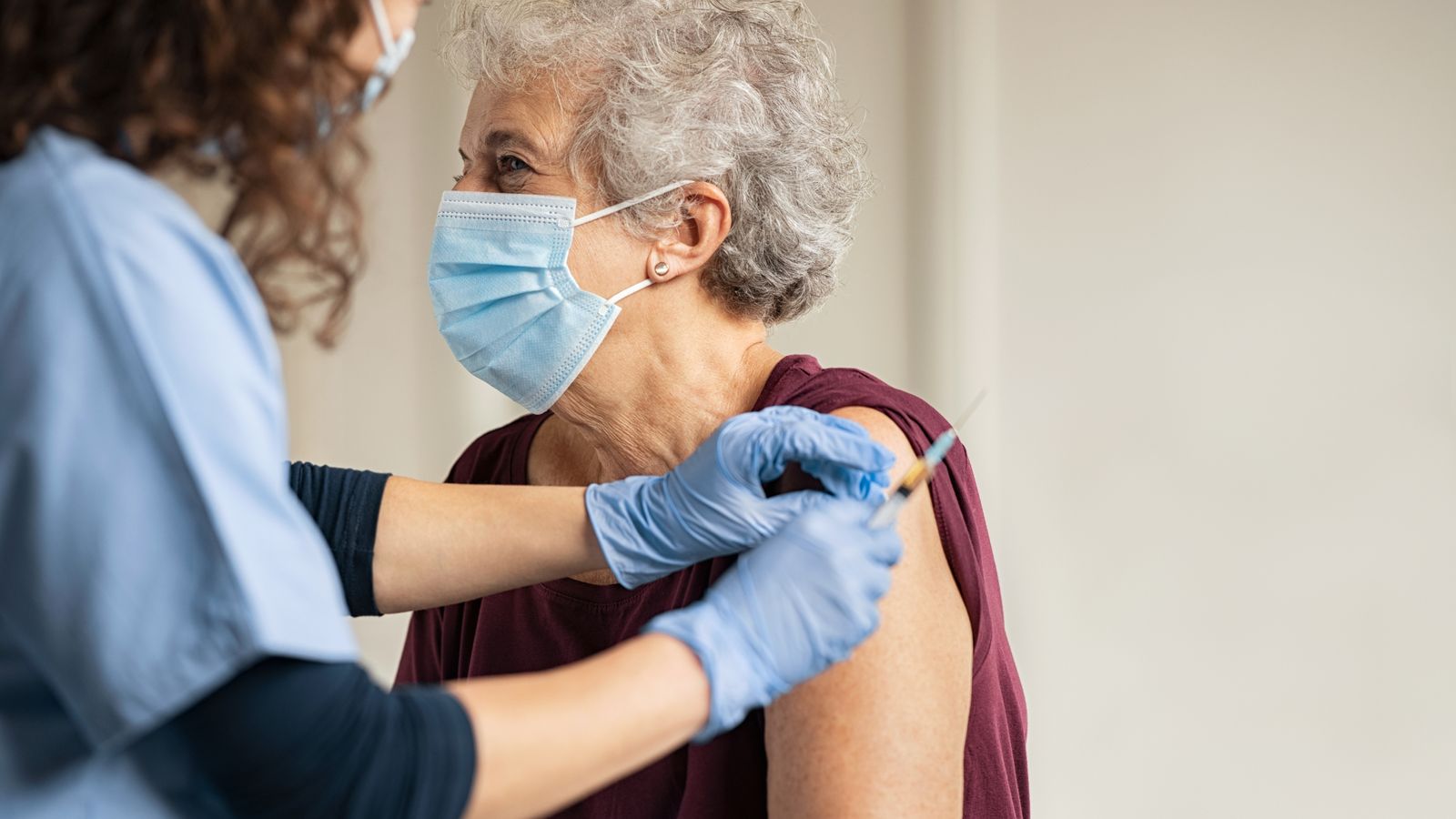Current COVID-19 vaccines are unlikely to protect against new variants of the virus in the future, the government’s scientific advisers have warned.
In a paper published on Friday, the Scientific Advisory Group for Emergencies (SAGE) said coronavirus may continue to evolve for years to come and that “eradication is extremely unlikely”.
The experts warn that eventually it is likely “current vaccines will fail to protect against transmission, infection, or even against disease caused by newer variants”.
Live COVID updates from the UK and around the world
The document, which considers the long-term plan for COVID jabs, says that “loss of vaccine effectiveness will result in further economic and social costs” and “a solution is to update vaccines to keep pace with virus evolution”.
The scientists add that “we should also consider whether future vaccination policy will aim to immunise the whole population or only those at risk from severe disease”.
The document, which was produced by SAGE’s vaccines update subgroup on 4 May, says current COVID jabs are based on the “Wuhan-like virus” that emerged in China in 2019.
Further doses of those vaccines might maintain protection into the winter of 2021/22 “but potentially less so for individuals with a less robust immune response”, it states.
The scientists say “worryingly” there is increasing evidence that COVID vaccines are less effective at protecting against infections and mild disease caused by the South African variant of the virus, compared to the Kent variant.
Please use Chrome browser for a more accessible video player
Several manufacturers have already started to produce updated vaccines for trials based on the South African variant instead of the virus originally identified in Wuhan, according to SAGE.
“If another variant (e.g., B.1.617 from India) predominated or co-circulated with B.1.1.7 (Kent variant) in the UK, it is not obvious at the moment which variant based vaccine would most effectively cross protect,” SAGE said.
Latest figures show cases of the Indian variant of coronavirus in the UK have risen by more than 2,000 in the space of a week.
While most cases were concentrated in the North West – particularly Bolton – and London, Public Health England said it was seeing “clusters of cases” across the country.
So far, there is no evidence that it causes more severe disease or renders the vaccines less effective.
Subscribe to the Daily podcast on Apple Podcasts, Google Podcasts, Spotify, Spreaker
In its document, SAGE says that “as the level of immunity from natural infections and vaccines increases, it is possible the virus will continue to evolve”.
“Since eradication is extremely unlikely, this evolution will continue for years,” it adds.
Earlier this week Matt Hancock announced thousands of volunteers would get a booster coronavirus vaccine as part of a world-first clinical trial in the UK.
The Cov-Boost study will trial seven vaccines and will be the first to provide data on the impact of a third vaccine dose, the health secretary said.
It will give scientists and experts a better idea of the impact of a booster dose in protecting people from COVID.






















